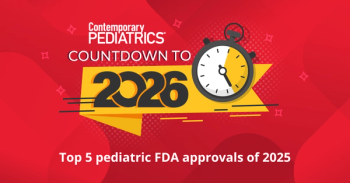
The mothers of our patients: How can we help?
Maternal depression and domestic violence aren't new problems, but recognizing them and referring parents appropriately are skills not usually taught in pediatric residency programs.
The mothers of our patients: How can we help?
EDITORIAL
During the late 1970s and the 1980s pediatricians found themselves caring for an increasing number of patients with chronic illness and neurodevelopmental disabilities. These conditions were termed the "new morbidities." Pediatricians recognized that their training had not prepared them adequately to care for these patients or to work with the many community resources needed to support both the patients and their families.
Four studies reported during the past year highlight a different kind of health problem for which pediatricians are not adequately trained:
- Among 157 mothers who sought care for their young children in a pediatric emergency department, 52% reported histories of adult physical abuse and 21% reported adult sexual abuse. Forty percent of the perpetrators of physical abuse and 10% of the sexual abusers of those mothers had regular contact with the victim's children (Duffy SJ et al: Pediatrics 1999;103:1007).
- Among 154 women who brought their children to a community pediatric practice, 17% reported domestic violence within the past two years, and screening uncovered two cases of child abuse that had not been previously reported (Siegel RM et al: Pediatrics 1999;104:874).
- Eighteen percent of 279 mothers who brought their young children to an inner-city general pediatric clinic had scores on a screening survey that suggested major depression (Heneghan AM et al: Pediatrics 1998;102:1394).
- Women whose young infants (<8 weeks old) required one or more primary care visits for a medical problem were three times more likely to have symptoms of depression than women whose infants were healthy (Mandl KD et al: Arch Pediatr Adol Med 1999;153:808).
Are the problems these studies identified important for pediatricians? They undoubtedly have a significant impact on the health of our patients. Maternal depression and domestic violence aren't new problems, but recognizing them and referring parents appropriately are skills not usually taught in pediatric residency programs. Looks like they should be.
Julia A. McMillan, MD, Editor-in-chief of Contemporary Pediatrics, is Vice Chair, Pediatric Education, and Director, Residency Training, Johns Hopkins University School of Medicine, Baltimore.
Julia McMillan. The mothers of our patients: How can we help?. Contemporary Pediatrics 1999;12:7.
Newsletter
Access practical, evidence-based guidance to support better care for our youngest patients. Join our email list for the latest clinical updates.








